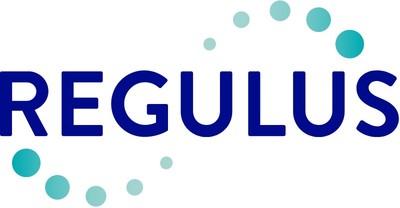|
Regulus Provides Pipeline Updates

Hepatitis B virus Lead Compound Demonstrates Compelling Data in Preclinical Studies
Glioblastoma multiforme Lead Compound Demonstrates Significant Survival Benefit as Monotherapy and in Combination with Temozolomide in Preclinical Disease Models Improvement in Multiple Key Endpoints Observed in Preclinical Program for Non-Alcoholic Steatohepatitis Initiation of New Chronic Mouse Toxicity Study for RGLS4326 for the Treatment of Autosomal Dominant Polycystic Kidney Disease Functional Delivery of anti-miRs Demonstrated to Liver and Kidney via Oral Administration LA JOLLA, Calif., Sept. 26, 2018 /PRNewswire/ -- Regulus Therapeutics Inc. (Nasdaq: RGLS), a biopharmaceutical company focused on the discovery and development of innovative medicines targeting microRNAs, today provided an update on advancements to its pipeline programs.
Pipeline Updates
"We are excited to provide these updates and advancements on multiple programs. Our past experience targeting microRNA in the liver that serve as viral host factors support our belief that our HBV program represents a novel and powerful approach to address this significant unmet need. The progress in our GBM and NASH programs build compelling data packages for our ongoing partnering discussions, and the initiation of the new chronic toxicity study for RGLS4326 represents an important next step towards resuming our clinical program in ADPKD, if successful. Finally, the demonstration of functional delivery to the liver and kidney via oral administration could represent a paradigm shift in the profile of microRNA therapeutics," said Jay Hagan, President and Chief Executive Officer of Regulus. "While the recent period has been a challenging time for the company, our science continues to advance in the face of these challenges." About Regulus Regulus Therapeutics Inc. (Nasdaq: RGLS) is a biopharmaceutical company focused on the discovery and development of innovative medicines targeting microRNAs. Regulus has leveraged its oligonucleotide drug discovery and development expertise to develop a pipeline complemented by a rich intellectual property estate in the microRNA field. Regulus maintains its corporate headquarters in La Jolla, CA. For more information, please visit http://www.regulusrx.com. Forward-Looking Statements Statements contained in this press release regarding matters that are not historical facts are "forward-looking statements" within the meaning of the Private Securities Litigation Reform Act of 1995, including statements associated with the expected ability of Regulus to undertake certain activities and accomplish certain goals (including with respect to development and other activities related to RG-012, RGLS4326, or its Hepatitis B Virus, NASH or glioblastoma programs), Regulus' estimated cash runway and anticipated cost savings associated with its planned reduction in workforce, the projected timeline of clinical development activities, and expectations regarding future therapeutic and commercial potential of Regulus' business plans, technologies and intellectual property related to microRNA therapeutics and biomarkers being discovered and developed by Regulus. Because such statements are subject to risks and uncertainties, actual results may differ materially from those expressed or implied by such forward-looking statements. Words such as "believes," "anticipates," "plans," "expects," "intends," "will," "goal," "potential" and similar expressions are intended to identify forward-looking statements. These forward-looking statements are based upon Regulus' current expectations and involve assumptions that may never materialize or may prove to be incorrect. Actual results and the timing of events could differ materially from those anticipated in such forward-looking statements as a result of various risks and uncertainties, which include, without limitation, risks associated with the process of discovering, developing and commercializing drugs that are safe and effective for use as human therapeutics, and in the endeavor of building a business around such drugs. These and other risks concerning Regulus' financial position and programs are described in additional detail in Regulus filings with the Securities and Exchange Commission. All forward-looking statements contained in this press release speak only as of the date on which they were made. Regulus undertakes no obligation to update such statements to reflect events that occur or circumstances that exist after the date on which they were made.
SOURCE Regulus Therapeutics Inc. |
|

